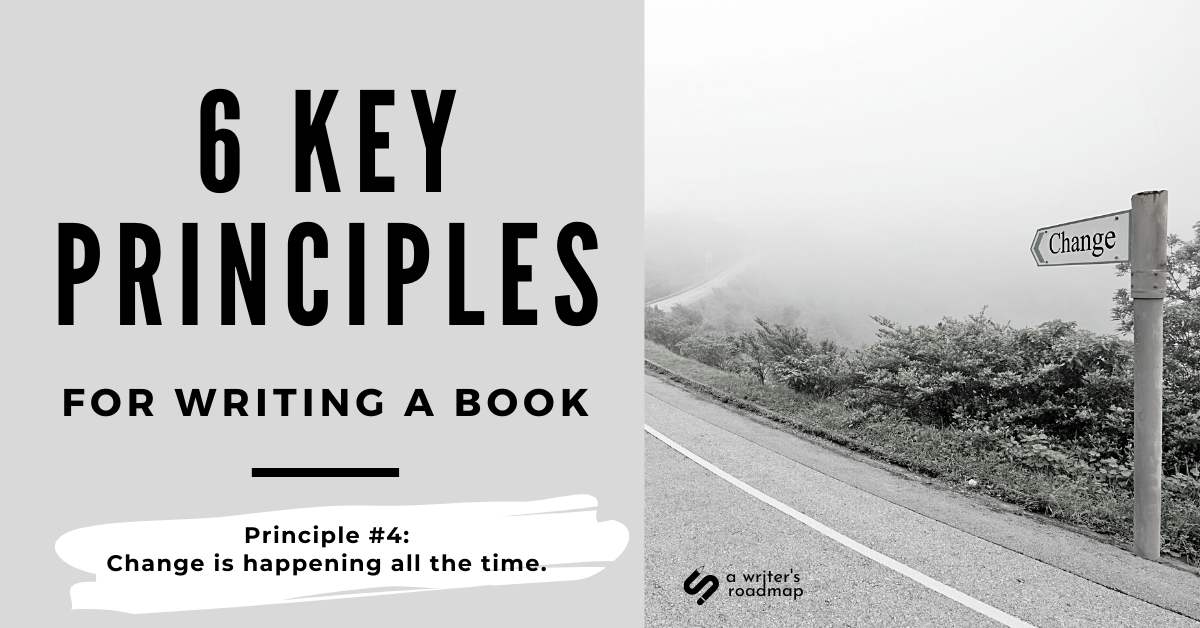- No single approach works for everyone
- The simplest and least invasive approach is frequently the best
- The solution and the problem are not necessarily related
- Change is happening all the time
- Focus on strengths and resources rather than weaknesses and deficits
- Focus on the present, rather than the past or future.
“True life is lived when tiny changes occur.”
Leo Tolstoy
Principle #4: Change is Happening All the Time
The first time I experienced the idea that change happens all the time was on day 40 of a 40-day meditative process. The guy whose book led me through the process, Michael Brown, had written that I would notice a difference in my life if I did this process consistently. So I did it consistently.
On day 40 I walked to work thinking, “what changed?”
Then it hit me. I had written two stories and revised a novella in the past month. I’d submitted one of the stories without working it to death or showing it to anyone.
Big changes, HUGE ones, and I hadn’t even really thought of them as changes, but more of a progression in my ability to submit my work for publication.
Michael Brown’s meditative process was not about writing. But the change had shown up in my writing life. Maybe it showed up in my personal life, too.
Pop Quiz: Famous writers on change
All right, here’s a quiz. Unfortunately, there’s no quiz interface, per se. That will be a job for future Pat, because I find the whole topic of change seductive and would really love to give a legit quiz.
First I will give the quote, then a random list of names. The answers will be at the bottom of this post (maybe).
Why maybe?
Because the answer is not the point!
See how you feel about the quotes without knowing who wrote them.
a. Life is a series of natural and spontaneous changes. Don’t resist them — that only creates sorrow. Let reality be reality. Let things flow naturally forward in whatever way they like.
b. Change your life today. Don’t gamble on the future, act now, without delay.
c. Yesterday I was clever, so I wanted to change the world. Today I am wise, so I am changing myself.
d. It’s not about standing still and becoming safe. If anybody wants to keep creating they have to be about change.
e. To improve is to change, so to be perfect is to have changed often.
f. The greatest discovery of all time is that a person can change his future by merely changing his attitude.
g. To keep our faces toward change and behave like free spirits in the presence of fate is strength undefeatable.
h. The moment of change is the only poem.
And here are the authors, in RANDOM ORDER.
- Adrienne Rich
- Miles Davis
- Winston Churchill
- Rumi
- Simone de Beauvoir
- Lao Tzu
- Oprah Winfrey
How you change is how you write.
Man, are we back here again? Back to the first key principle for writing a book: Know thyself.
I know writers who:
- stop writing when their work is criticized or ignored
- double down with writing when their work is criticized or ignored
- won’t put their stuff out in case it gets criticized or ignored
- need repeat reassurance that their stuff is good, so if it’s criticized or ignored, they can legitimately feel that it’s not about them
This is not because they cannot write. It’s because they are stuck in an earlier point of thinking about their writing. They have not realized the incredible, freeing truth:
To keep our faces toward change and behave like free spirits in the presence of fate is strength undefeatable.
Helen Keller
Change is always happening. Your cells completely replace themselves every seven years.
I heard this at a party, so it might not be true.
But if it were true, you can bet they don’t all change at midnight on the last day of year seven!
It’s a gradual process, just like everything. Having a baby, writing a book, getting old, these all take time. Every day you change a little in some way you can’t quite recognize.
Don’t even try to hold on to anything. Take the ride.
After all,
The moment of change is the only poem.
Adrienne Rich
Next up: Principle #5
Focus on strengths and resources rather than weaknesses and deficits.
If you don’t want to miss this KEY PRINCIPLE, I hope you’ll sign up for the Thursday Postcard!

